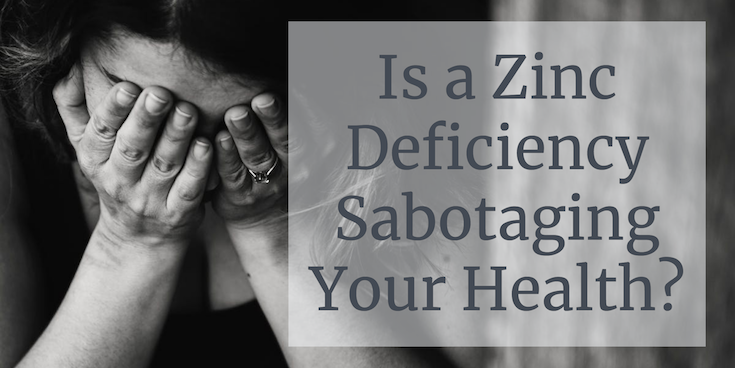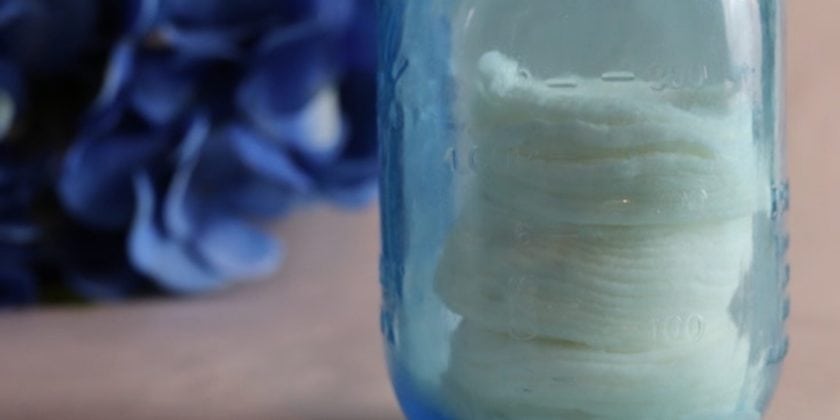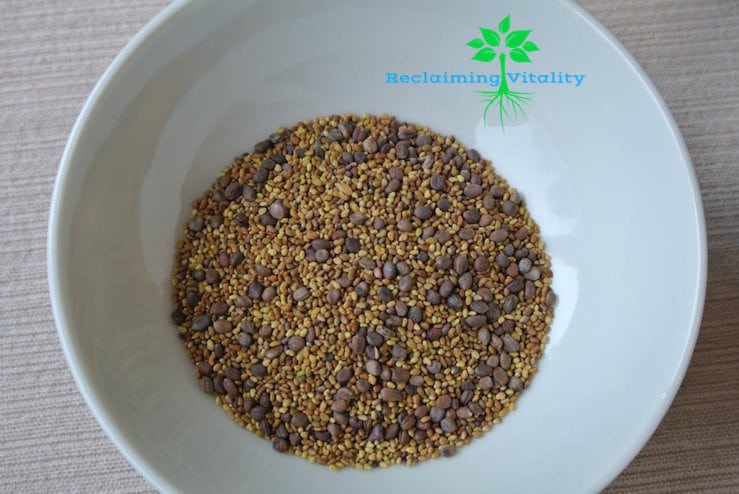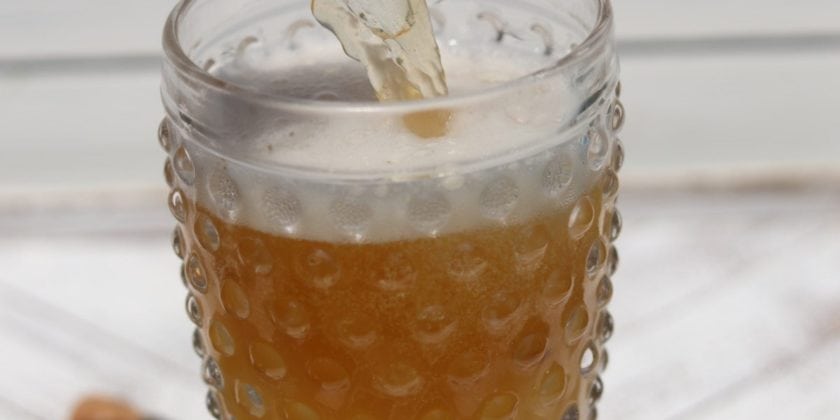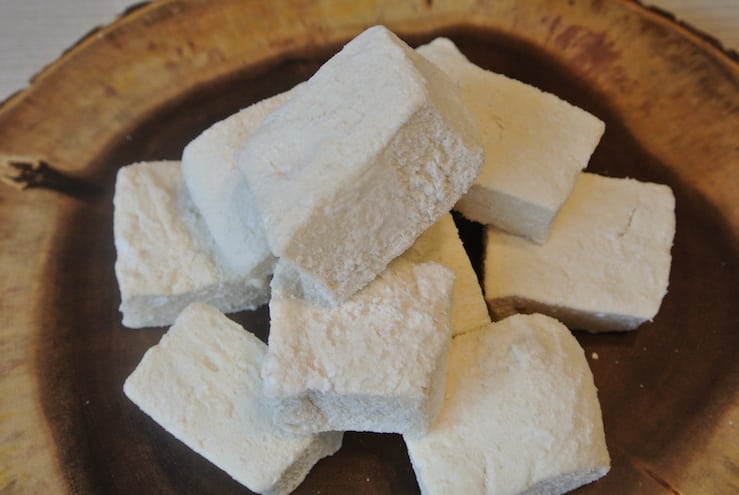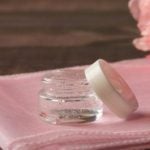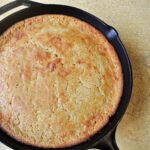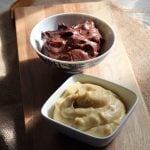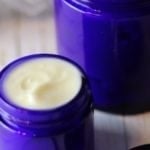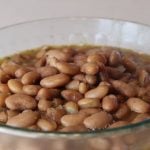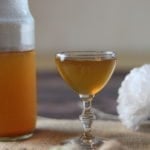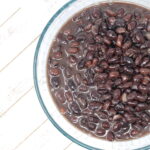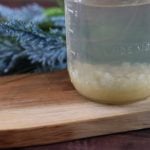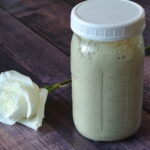How often do you think about zinc and its effects on your health? If you are like most Americans, you probably don’t think about it at all. Or maybe you think about it in terms of immunity, like when you are getting a cold. This mineral, however, is not just for immunity (although it is extremely important for that) it is also needed for your digestion and making over 100 different enzymes in your body, including your brain. Guess what! Most Americans are deficient in zinc. What does a deficiency in zinc mean in terms of health consequences? Let’s explore this below.
Zinc and other minerals:
I know I promised to jump right into the health consequences of a zinc deficiency and I will below, but first I want to make sure you understand something important about minerals. Minerals need to be in balance in the body. Many minerals compete for the same receptors. Zinc, for instance, competes with calcium, phosphorus, copper, iron, cadmium, and lead in the body. So, if you are not getting enough zinc, this leaves more room for another mineral and leads to mineral imbalance. When talking about lead, cadmium, or even copper, this can have dire consequences! More on this below.
What does the body use Zinc for?
- Zinc and Digestion:You may have heard the old adage “You are what you eat.” While this is true, it is actually more accurate to say “You are what you absorb.” You can eat the most perfect diet on the planet, but if your digestive function is compromised, not only will you not absorb that perfect food, that food can actually cause damage to your gut and an increased burden on many of your organs. Zinc is crucial to digestive function because your body can’t make hydrochloric acid (HCL) without zinc! Why is this a problem? Hydrochloric acid is needed for you to break down and absorb your food. It is also the body’s first line of defense when it comes to bacteria, parasites, and other pathogens. Here is a mind bender for you: If you don’t have enough HCL, you can’t absorb zinc as well as other nutrients)! There is a vicious cycle here that can quickly cause a lot of problems. Even the healthiest gut and most robust digestive system only absorbs about 60% of dietary zinc. Poor digestion can lead to food sensitivities as well as many uncomfortable gastrointestinal symptoms.
- Producing enzymes: Zinc is used in over 100 enzymes in the body
- Skin and bone health
- Prostate health
- Immune system function
- Taste perception
- Synthesizing cholesterol
- Regulating the release of vitamin A from the liver
- Cell growth
- Wound healing
- Cofactor for absorption of fats
- Carbohydrate metabolism
Why is it so easy to become deficient in zinc?
- Modern farming practices deplete zinc from the soil. At least 30 states have soil that is deficient in zinc!
- The Standard American Diet does not provide enough zinc.
- Zinc is lost in the processing and manufacturing of foods.
- Refined grains: When grains such as wheat are processed, the outer bran is removed. This is the part that contains zinc. The inner part of the grain contains cadmium. Without the protection of zinc to fill the receptor sites, cadmium is freely absorbed in the body. Eating the whole grain protects the body from filling up with cadmium which is a heavy metal even considering the phytates that bind with minerals in the GI tract.
- Stress burns through our zinc stores.
- Poor digestive function (inadequate hydrochloric acid (HCL) production): A low stomach pH is required for the body to be able to effectively cleave zinc from our food. If you don’t have enough stomach acid, (most Americans don’t!) then your body is unable to do this.
- Alcohol: Zinc is needed to process alcohol and therefore we run through zinc stores quickly if overindulging on alcohol.
- Sugar: Consuming processed sugar burns through our zinc stores. When sweetening desserts, use organic maple syrup or raw honey which contain zinc and other trace minerals.
- Exercise: zinc is lost through our sweat. Of course, exercise is important! Just be aware that if you are sweating you will need to replace some zinc (as well as electrolytes).
- Illness: Not surprisingly, the immune system runs through zinc stores fairly quickly when battling a col, flu, or a more serious sickness.
- Caffeine: Drinking caffeinated beverages also depletes zinc stores.
- Diarrhea: We lose significant amounts of zinc when we have bouts of diarrhea. If you often have diarrhea or very soft stools, this is not normal and you should see a health professional.
- Vegetarianism/Veganism: These diets are notoriously low in zinc. Also, zinc from animal sources are much better absorbed by our omnivorous bodies than zinc from vegetable and grain sources which contain phytates, lectins, and oxalates that bind to minerals in our GI tract.
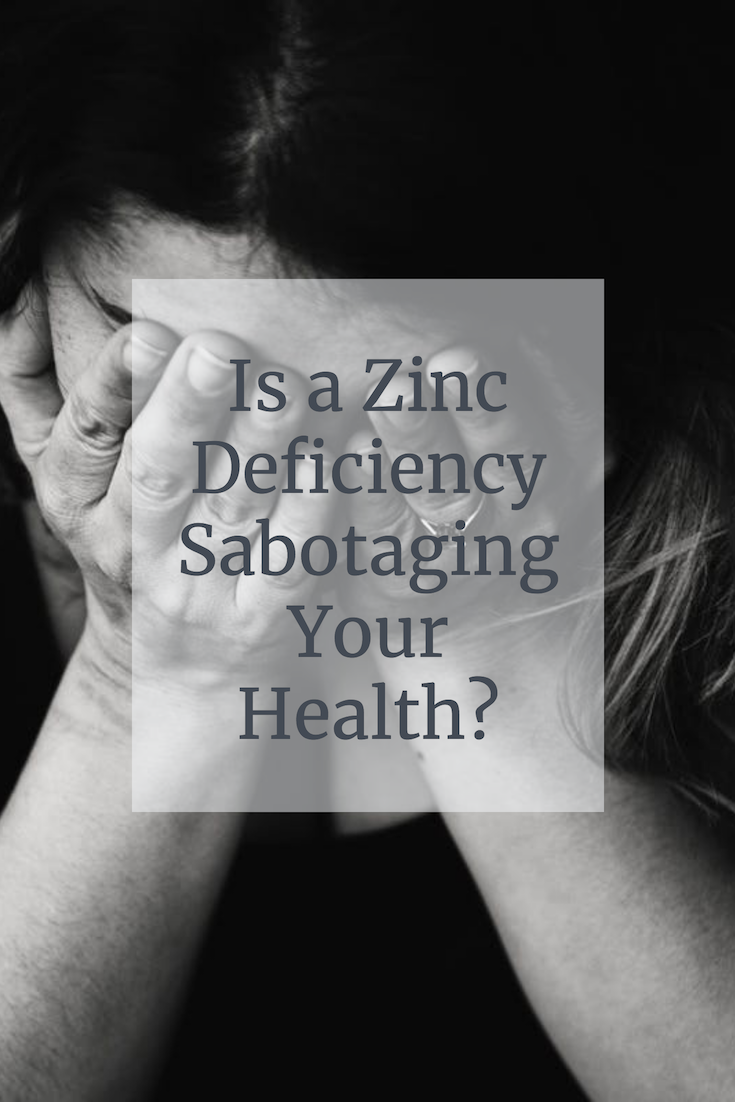
Best Food Sources of Zinc:
- pastured poultry
- grass-fed beef
- grass-fed dairy (if tolerated)
- pumpkin seeds
- brazil nuts (also high in selenium)
- pecans
- oysters
The Antagonistic Relationship between Zinc and Copper:
As mentioned above, minerals need to be in balance in our bodies. A common phenomenon nowadays is copper excess or toxicity. Although both are important minerals for the body, zinc and copper are antagonists. They actually compete for the same receptors in the body. So, a zinc deficiency can go hand in hand with copper excess. This is often the case when a person consumes the Standard American Diet (SAD) which is rich in copper sources. Copper toxicity is common in adrenal fatigue, chronic fatigue syndrome, and fibromyalgia among other heartbreaking illnesses.
Important: If you are taking the birth control pill, be aware that you need extra zinc and B6 to avoid becoming copper toxic.
Symptoms of excess copper in the body are:
- Fatigue
- Cold hands and feet
- Depression
- Paranoia
- Chocolate cravings
- Hopelessness and Despair
- Hypothyroid
- Brain Fog
- Headaches and Migraines
- Insomnia, Inability to stay asleep
- Eating disorders
- Racing/pounding heart
- Dry Skin
- Memory problems
- Anxiety
- PMS
- Yeast infections
- Short attention span
- Low blood pressure
- obsessive thoughts
- suicidal thoughts
- Muscle cramps
- Aching muscles
One caution here: Although not common, certain individuals who are copper toxic will notice a worsening of their symptoms upon supplementing with zinc because of something dubbed “copper dumping”. This is when too much copper is released into the body too soon. If you determine you are deficient in zinc, start supplementing, and then experience a worsening of symptoms or manic behavior, back off of the supplement. This doesn’t mean that you don’t need the zinc! On the contrary, it is crucial for you to get it. You just need to go slowly when you reintroduce. A functional doc or nutritional professional can guide you through this process safely.
The Zinc Deficiency Test:
Thankfully, there is a simple at-home test that you can do to determine if you are zinc deficient. All you need is a bottle of aqueous zinc and a timer!
- Pour about 1 teaspoon of the aqueaous zinc into a small cup or bowl.
- Put the zinc in your mouth, but do not swallow! Swish it around and notice what it tastes like (or if there is no taste).
- Note at what point on the timer you detect a taste and ask yourself the following questions: Does it taste sweet? Does it taste like nothing? Does it taste fuzzy? Minerally?
- If you had an immediate and strong taste of mineral or fuzzy, you are sufficient and you can spit out the zinc. On the other hand, if you didn’t taste it at first, you can swallow the zinc.
Interpreting the Results:
- If the zinc tasted sweet or like nothing, this strongly suggests a deficiency .Start supplementing with zinc carnosine (see below) capsules and retest in a month to see if you should keep supplementing.
- If somewhere in the middle of the test, the taste became fuzzy or minerally, this strongly suggests a moderate deficiency. Supplement with zinc carnosine (read below) for about a month and then retest yourself to see if you should keep supplementing.
- If you are sufficient in zinc (meaning you do NOT have a deficiency), you should immediately have a minerally, fuzzy, or horrible taste in your mouth.
How to Supplement with Zinc:
If you determine through the taste test that you are deficient, you will want to temporarily supplement with zinc. The RDA for zinc is only 11 mg for men and 8 mg for women, but for optimal zinc levels, getting 15-30 mg of zinc is ideal. For the short term correction of a deficiency, you can take 30-90 mg. Just be sure to do the zinc test every few weeks and stop once you pass the test (meaning you are sufficient). You don’t want to overload your zinc either. As stated above, minerals need to be in balance in the body. After you have tested as sufficient, from then on, be sure to get your 15-30 mg of zinc either through your diet and/or supplementation, but do the zinc test on yourself monthly to ensure you aren’t sliding into a deficiency again. Be sure to use quality supplements as the supplement industry is highly unregulated. See my post, “Should you be taking supplements?” for more information.
The Best Supplemental Form of Zinc:
Since there are 18 different types of zinc, which should you take?
- Zinc carnosine (Integrative Therapeutics) is my favorite form of zinc because it is especially healing to the GI tract. It can also reverse damage done by taking NSAIDS. (Did you know that taking NSAIDS damages your stomach lining? It increases intestinal permeability, can cause ulcers, perforation, bleeding and more. No thanks!) Zinc carnosine can also help heal ulcers. I really like the Zinc Carnosine from Integrative Therapeutics. It is a pharmaceutical grade supplement so you can trust its purity and quality.
- Zinc Picolinate (Allergy Research Group) is my second favorite form of zinc because it is easily absorbed. Picolinic acid is a natural mineral chelator which is secreted from the pancreas during digestion, where it binds to minerals, such as zinc, to help the mineral’s absorption.
You can buy either of these supplement as well as the aqueous zinc at Fullscript.com/cduffy for 10% off.
Do you supplement with zinc? Have you ever been copper toxic?
Keep in touch!
We love pinning on Pinterest!
However, our favorite way to keep in touch is through email! Subscribe and never miss a post. Plus, get access to the Holistic Health Resource Library. There you can download ebooks, PDFs, and Homeopathic Remedy Cards by condition for FREE!
You will also get emails with information on how to incorporate true holistic healing into your life. Absolutely no spam!

